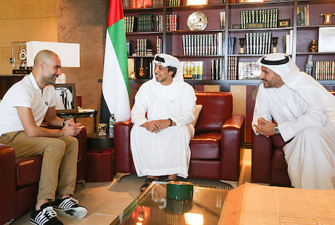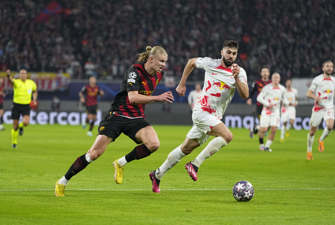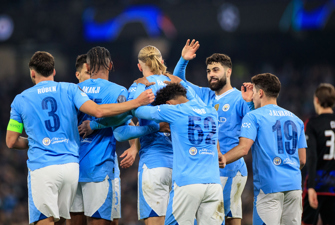The hidden webs of multi-club ownership leave football exposed to crime
The rise of multi-club ownership has led to increasingly complex corporate structures that obscure who really controls football clubs. These hidden webs make it easier for criminals to exploit the sport through money laundering, match-fixing, financial fraud, and trafficking of young players. Read the second instalment in Play the Game's series on MCO.
The rise in multi-club ownership (MCO) in football has created an increasingly complex global network encompassing at least 400 clubs that offers greater opportunities for criminality to target the sport.
In a recent report, the United Nations Office on Drugs and Crime (UNODC) warned of a ‘sophisticated network of investors, financers, facilitators and bettors’ that are introducing activities including money-laundering, tax evasion, trafficking in persons and sexual abuse into sport.
Since 2021, when Play the Game first began tracking MCO, there has been a significant shift towards consortia made up of large numbers of investors, which can make it impossible to identify some of those involved in club ownership and pose a problem because complicated ownership structures can make it easier for individuals or groups with bad intentions to stay hidden.
According to Play the Game’s research, 34 clubs in England have owners or significant shareholders who have links to other clubs. At some of these clubs, the ownership is part of complex networks of offshore shell companies based in jurisdictions accused of facilitating tax avoidance.
A study of clubs in the English Premier League in 2023/24 by Peter Duncan and Nicholas Lord from the University of Manchester in the UK found that over half of the clubs had at least one holding company incorporated offshore, usually in jurisdictions that score relatively highly on the Tax Justice Network’s ‘secrecy score’ scale.
The research also found that at least 10% of the holdings at a dozen of the 20 clubs in the 2023/24 Premier League could not be formally traced back to their beneficial owners due to secrecy provisions. For many of these, the entire clubs’ shareholdings could not be formally verified.
Nick Lord said: “What we were looking at was how ownership structures were put together in these opaque shall-like structures which is very relevant to MCO. So, if you want to hide the UBO [ultimate beneficial owner] or who investors are, you can clearly do that.”
Football is not equipped to decipher these complex corporate structures. For years, Roman Abramovich denied funding Dutch club Vitesse Arnhem despite the Dutch club taking swathes of players on loan from Chelsea, the English club that the Russian billionaire did publicly own. Only after years of investigation by The Guardian was this link finally proved in 2023.
“If you want to conceal [ownership] in terms of multi-ownership, you can. You cannot expect the national associations to have the expertise to do this, so they are very dependent on a small group of very dedicated people that look into this,” says Hans Nelen, a professor of criminology at the University of Maastricht.
Nelen is the author of a 2022 book on financial malpractice in professional football, ‘Ostrageous: How greed and crime erode professional football and we all look the other way’. “
Hidden networks can exist outside official ownership structures
These increasingly opaque links between clubs can also exist outside of official ownership structures and do not always involve direct ownership.
US investor Robert Platek previously owned SønderjyskE in Denmark and Italy’s Spezia, currently controls Casa Pia in Portugal and is now negotiating to buy the English third-tier club Reading. Platek is also the global head of credit and a partner at BDT & MSD Partners, the investment vehicle of tech billionaire Michael Dell.
A subsidiary of this group, MSD UK Holdings, has loaned money to several English clubs over the years, including Southampton (78 million GBP), Burnley (60–80 million GBP), West Bromwich Albion (20 million GBP), and West Ham United (121 million GBP).
There is no suggestion of criminal wrongdoing in this relationship, but this is a clear conflict of interest as loans can place MCO investors in a position of significant influence without the risks, responsibilities, and scrutiny that go with traditional club ownership.
Criminal networks buy into financially weak clubs
In some cases, criminal gangs have exploited a club’s weak financial position to create hidden networks of clubs for illicit purposes.
Eric Mao used the strategy of loaning money to cash-strapped clubs. He gained influence over a string of clubs from the Baltic to the Czech Republic, Ireland, and Portugal. In some cases, Mao bought stakes, but at other clubs he provided loans, usually to cover players’ wages.
Mao's network of clubs was tied to a match-fixing syndicate from Singapore and collapsed after being exposed but Mao’s emissaries are still looking for opportunities to buy into financially weak European clubs.
Another criminal group, commonly known as the Gypsy Clan, is believed to have infiltrated a significant number of clubs in Eastern Europe for the purposes of match-fixing, which is often tied to money laundering. The clan’s name is believed to be derived from its strategy of stealing the identity of people in transient groups in order to open betting accounts with offshore betting operators and bet on fixed matches.
Some MCO owners may not be suitable for club ownership
There are many other examples of how common ownership of clubs can lead to illicit activities.
In Afghanistan, two clubs that are understood to have the same owner allegedly conspired to deny another team the chance to win the country’s 2025 league title, while matches between clubs under the same ownership in India’s Delhi Premier Football League are suspected of manipulation.
There have also been instances of MCO owners breaking the law, sometimes in areas outside their football club holdings, which still raises questions about their suitability for club ownership or control.
One example is US group 777 Partners, which built up a portfolio of stakes in seven major clubs in Europe and South America. In 2023, the group was revealed as the subject of court actions in the USA including alleged offences under the Racketeer Influenced and Corrupt Organisations (RICO) Act before the group collapsed.
Another example is Andy Pilley, then owner of a string of clubs from England to Ireland and the United Arab Emirates, who was sentenced to 13 years in prison for fraud. The sentence was not related to his football club ownership, which has been taken on by his family, but the judge described the offences as ‘a sordid tale of squalid lies, greed and fraud.’
In 2021, Luxembourg entrepreneur Flavio Becca, who at the time funded clubs in Belgium and the Grand Duchy, was given a two-year suspended jail sentence and a 250,000 euro fine for abuse of company assets.
Morris Pagniello, who is behind the Racing City Group of lower-tier clubs, was sanctioned in 2016 by the Italian football federation, the FIGC, with an eight-month ban and a 35,000 euro fine for failing to report knowledge of a fixed match.
Law enforcement is looking into player transfers
As match-fixing is often hard to prove and successfully prosecute, law enforcement is looking at other areas of football – including MCO – for criminality.
One area attracting interest from law enforcement is the potential for exploitation of player transfers between two clubs in the same MCO when the fee is ultimately decided by the same controlling entity. For money launderers, any transaction that offers the opportunity for under- and over-valuation, such as a transfer fee, is attractive.
Mamadou Sarr, for example, was transferred from Strasbourg in France to English Premier League side Chelsea for a reported 15 million euros. Both clubs are owned by US group BlueCo, and Sarr was immediately loaned back to the Ligue 1 club. There is no suggestion this particular transfer broke any laws, but this type of arrangement is not uncommon among clubs within the same MCO group and open to exploitation.
Mamadou Sarr has been transferred for a huge sum between two clubs under the same MCO and immediately loaned back to the club he came from. Police are concerned that this type of arrangement can be used for money laundering. Photo: Shauna Clinton/Sportsfile via Getty Images
Where players are part of an MCO group made up of multiple investors and numerous clubs, this can create a hydra of opportunities to move money about.
“Players become tokens,” one law enforcement official told Play the Game. “The opportunity to launder money through football clubs is phenomenal.”
Players' bank accounts can also be used for money laundering through over-payment. This works by clubs paying an agreed salary to players and then adding an extra payment, which the players are instructed to transfer to shell companies based overseas.
In its recent report, UNODC cautioned against this key trend of an international flow of illicit funds:
“Money made from corrupt player transfers often vanishes into complex laundering schemes involving multiple companies across several countries. According to cases in which Swedish law enforcement has been involved, funds typically end up in countries in the Baltic region, East Asia and the Middle East, which complicates efforts by tax authorities and law enforcement to track and address financial crimes.”
International transfers
The number of MCO networks - now nearly 150, according to Play the Game’s research -- and the global volume of international player transfers are booming.
According to FIFA's latest Global Transfer report, there was a record high of nearly 80,000 international transfers of football players in 2024 involving 8.59 billion US dollars in fees. There is also significant movement of players in and out of countries where MCO is booming.
Nine European nations are among the world’s top 12 countries for selling players abroad. Those same nine European countries have also experienced a wave of MCO interest, increasingly through consortia made up of multiple investors with often opaque ownership structures.
Table 1 - Player transfers and MCO
| Country | Incoming transfers | Outgoing transfers | Clubs in MCO |
| Brazil | 1.102 | 1.113 | 8 |
| Portugal | 767 | 764 | 15 |
| England | 745 | 908 | 34 |
| Spain | 602 | 783 | 30 |
| Argentina | 552 | 763 | 1 |
| Italy | 482 | 603 | 26 |
| Germany | 478 | 548 | 9 |
| France | 454 | 711 | 21 |
| Turkiye | 402 | 319 | 3 |
| USA | 398 | 475 | 37 |
| Belgium | 342 | 420 | 16 |
| Romania | 340 | 227 | 3 |
Source: FIFA Global Transfer Report/Play the Game
Hans Nelen explains:
“When you have new owners of clubs, you see the transfer carousel start with the agents. With players, it’s hard to get an objective value, and once you have transferred one player, you can then transfer 10, and it becomes a maze, and people get lost, and you can use this for all sorts of purposes, like money laundering and tax fraud.
“If you look at the entwinement between player agents and owners, they make a lot of money, but 90% of football clubs from the outside do not make any money and the average player does not decide where they will play next, especially in terms of MCO. Most of the money ends up in the pockets of the people who control the transfer carousel.”
Using UEFA’s metric of 36 players per club, Play the Game’s research suggests more than 14,000 players are now employed by teams in MCO, which offers a myriad of transfer opportunities that can be used for non-sporting reasons.
“When you see players crossing international boundaries from one country where they have not been successful to another country after just a few weeks for a fee, you have to ask: ‘Why are they moving’?” adds the law enforcement official, Play the Game spoke with.
Law enforcement officers have become very interested in the potential for crime connected to player transfers between academies and clubs under MCO. Pictured is Umeh Emmanuel, who came to Europe in 2002 and was eventually sold to FC Zurich for 1.3 million euros in the summer of 2024. Photo: Sergio Brunetti / GocherImagery/Future Publishing via Getty Images
Extensive trafficking of young players from Africa
FIFA’s latest transfer report shows a major imbalance between players transferred abroad from clubs in Africa (3,235) and incoming transfers (2,325). More players are clearly leaving African clubs, yet the continent is shunned by MCO investors. Just 6% of clubs known to be in MCO are in Africa.
Instead of buying into African teams, clubs from outside the continent often source players through academies and agents that are known to work directly with large MCO groups and are behind large numbers of player transfers.
“Football is the only business that allows the buying and selling of human beings,” said the law enforcement official. “We know that people are using academies in Africa and Europe [for criminality].”
FIFA’s rules are supposed to prevent clubs from signing players aged under 18 without parental consent or the parents moving to the new country with their children, but non-governmental organisations such as Mission 89 and the Institute for Security Studies have warned about player trafficking.
“The trafficking in persons also takes place with the parameters of sports organisations, such as club academies,” warned UNODC in its report.
“Many athletes and other individuals in sport are unknowingly victims of the trafficking in persons. Young footballers, particularly from Africa, are at the most at risk and are often trafficked under fraudulent pretences for exploitation in sports clubs in Europe.”
This is partly facilitated by hidden networks of clubs and academies that work together to exploit global regulation from continental confederations and FIFA.
Players under the age of 18 have been brought to Russia and Armenia from Africa and moved into Bulgaria – and thereby the European Union - in a hidden network of academies and clubs that has been in existence for years.
Russian businessman Anton Zingarevich (with yellow scarf) has sold players for millions of euros through his Bulgarian club Botev Plovdiv. Photo: NurPhoto / Getty Images
A succession of young players sourced from academies in Ghana and Nigeria have moved to an academy at the lower-league Russian club FDC Vista. Once 18, players were swiftly moved on to Danish club Fremad Amager, which was owned by Russian businessman Anton Zingarevich. In 2020/21, five players aged just over 18 moved from FDC Vista to Fremad Amager according to the website Transfermarkt.
In 2021, Zingarevich sold Fremad Amager and acquired Bulgarian club Botev Plovdiv, which has sold on players for millions of euros from this chain. According to Transfermarkt, Umeh Emmanuel joined Vista from the Right2Win Academy in Nigeria on 1 January 2022, aged 17. The winger signed for Botev Plovdiv in October 2022 and was sold to FC Zurich for 1.3 million euros in the summer of 2024.
Botev also sold Christian Nwachukwu to English Championship side Sheffield United for 1.2 million euros this season. Nwachukwu joined Plovdiv in February 2024 from FDC Vista, where he had been since 2022 aged 17.
In 2023, a complaint over the alleged trafficking of young players through this unofficial network was lodged with FIFA. Subsequently, Vista’s licence to play professionally in Russia was taken away. Vista now only plays friendlies.
All player details were also removed from the club’s current website but a mobile version dating back to the FIFA complaint in 2023 remains active. One player aged only 16 at this time is now at FC Van, which Zingarevich is reported to have bought in September 2023.
A stream of players went from Right2Win to FC Van around this time. According to Transfermarkt, five players moved in the 2023/24 season, while another five players signed in 2022/23—before Zingarevich’s acquisition was publicly reported—according to Transfermarkt.
According to Transfermarkt, Vista now only has one registered player, Russian winger Inal Grigoliya, but match details show the vast majority of players taking part are from Africa, and the club continues to recruit players as young as 16.
In December 2024, Zingarevich was banned from entering Bulgaria for 10 years by the country’s counter-intelligence service.
Regulations are coming - but slowly
FIFA’s attempts to improve transparency over player movements and introduce new regulations on football agents have been delayed by a court case. In May 2023, the District Court of Dortmund issued an injunction, which prevented FIFA’s new football agent regulations from coming into force in Germany. FIFA suspended the introduction of the new rules globally in December 2023 pending a European Court of Justice review. A ruling is expected by this Autumn.
New European Union anti-money laundering regulations that will apply to football agents and clubs and bring some transparency to relationships between MCO groups have also been delayed and will now come into force on July 10, 2029 – two years later than planned.
With football’s governing bodies unwilling to introduce any meaningful form of regulation on MCO specifically, this vacuum will give criminals more time and opportunity to exploit the sport.



